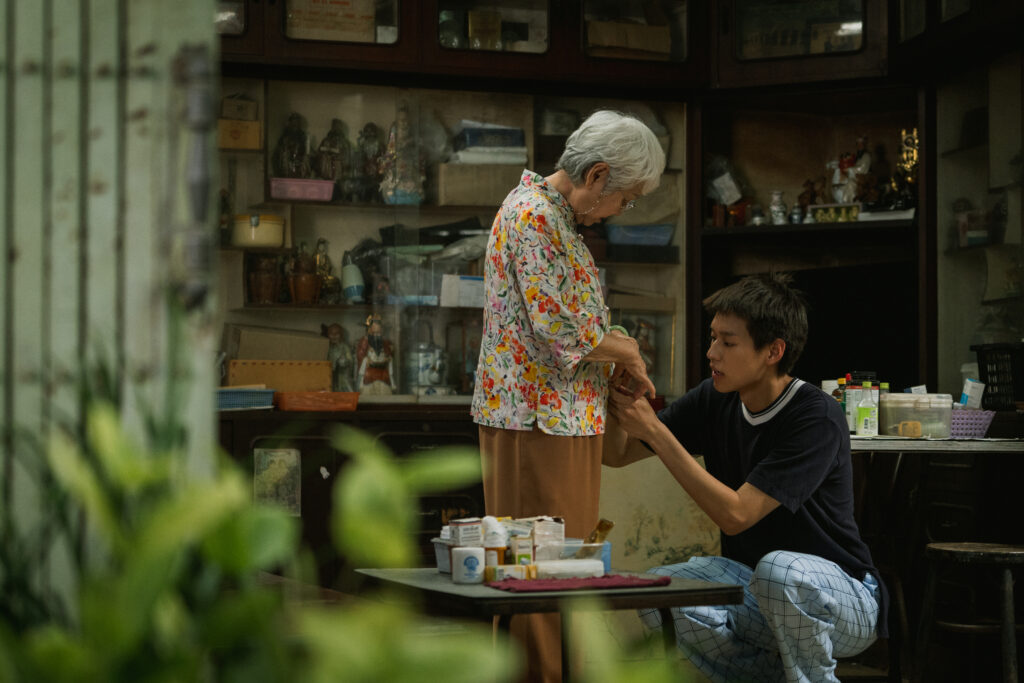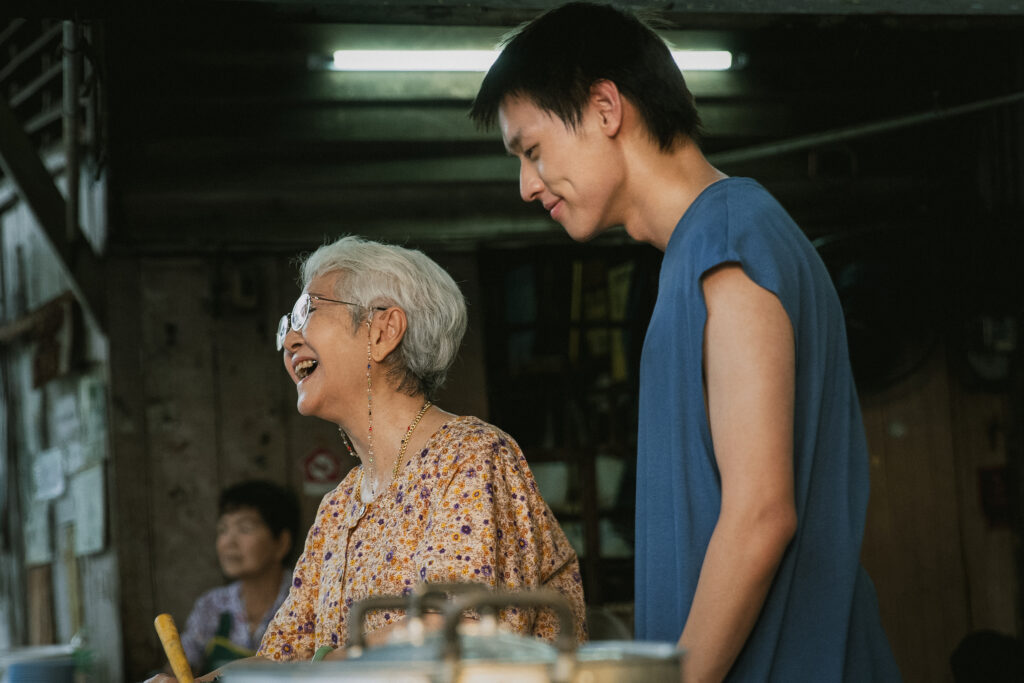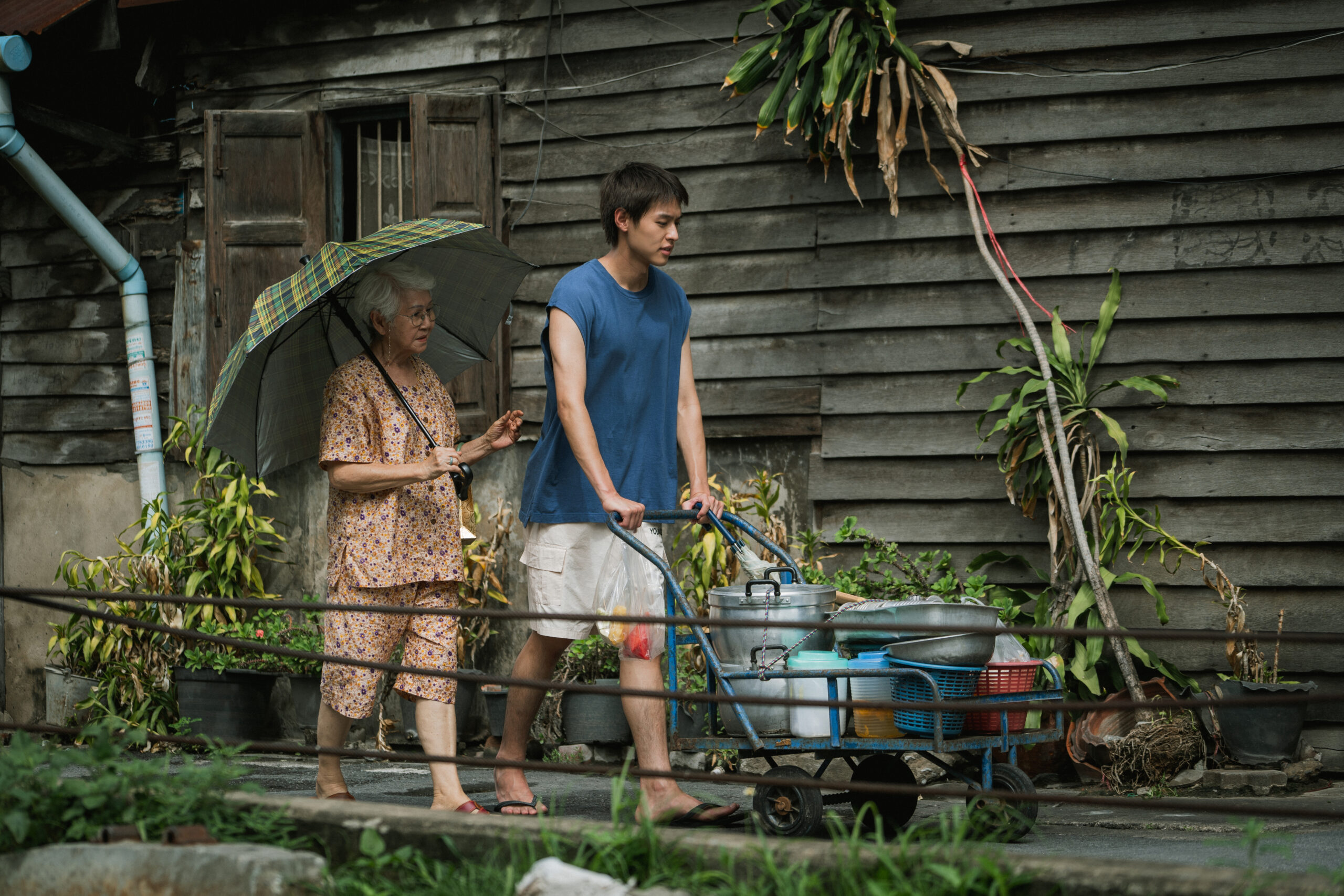How to Make Millions Before Grandma Dies has become a sensation. This heartwarming comedy-drama, starring Putthipong ‘Billkin’ Assaratanakul and Usha ‘Teaw’ Seamkhum, tells the story of a young man who, motivated by his grandmother’s wealth, quits his job to become her caretaker.
Co-written by Pat Boonnitipat and Thodsapon Thiptinnakorn and directed by Boonnitipat himself, the film has shattered box office records across Southeast Asia and is now making waves internationally. But beyond the commercial success, something truly remarkable is happening: the film has sparked a movement, with young people across Asia taking their grandparents out and spending more time with them.

In this exclusive interview for Resonate, I sat down with director Pat Boonnitipat to discuss the making of the film, the unexpected impact it’s had on audiences, and his unique approach to filmmaking. Boonnitipat, with his disarming candour and infectious enthusiasm, offered a glimpse into the personal journey that shaped this heartwarming story.

How to Make Millions Before Grandma Dies is deeply rooted in personal experience. Boonnitipat revealed that the writer’s initial draft was “only 10 or 16 pages—more of a synopsis or treatment than a full script.” From there, the two embarked on a two-year collaborative process, fueled by intimate conversations and shared family histories. “We spent a lot of time working together,” Boonnitipat explained. “We shared personal experiences about our families, and most days, it was just the two of us sitting down for four to five hours, sharing stories and organizing them.”
This intimate approach to storytelling is evident in the film’s genuine portrayal of family dynamics. Boonnitipat emphasized that the characters are not mere figments of imagination but are inspired by real people in his and the writer’s lives. “The mother in the film, Sue, is modeled after my own mother, who also shares the same name,” he shared. “The grandmother is inspired by Bet’s (the writer’s) grandmother, who sold congee her whole life.”
Read more: Archie Kao Gets Real About Hollywood, Identity, and ‘Interior Chinatown’
This commitment to drawing from real life extended to the casting process. The remarkable Usha Seamkhum, who plays Amah, had never acted in a film before. Boonnitipat recounted, “We were lucky to find her. She’d worked in a rock band’s music video where my assistant director was also involved.” He was struck by Seamkhum’s naturalism and her ability to inhabit the character with ease. “She doesn’t ask questions like ‘How should I act? What kind of face should I make?’ She just goes with it,” he remarked.
How to Make Millions Before Grandma Dies marks Boonnitipat’s first foray into feature film directing. His approach, however, was far from conventional. He opted for a deliberate and precise style, a departure from the fast-paced editing common in television. “Making a feature film is so different from TV series or short projects,” he explained. “It’s much harder to be precise. In TV, I relied heavily on coverage—shooting a lot of material and deciding later how to use it. But for this film, I wanted every shot to be intentional, to make the most out of every moment.”

This intentionality is reflected in the film’s distinctive visual language. Boonnitipat favoured wide shots and a slower pace, creating a sense of intimacy and allowing the audience to fully immerse themselves in the characters’ world. “While writing the script, many people told me the film might not make much money,” he admitted. “Some even doubted it would succeed commercially. I treated it as if it might be my first and last feature, so I wanted it to feel timeless.”
The film’s impact has extended far beyond the box office. Boonnitipat expressed surprise and delight at how the film has inspired audiences to connect with their elders. “What surprised me is how it has inspired people to spend more time with their elders,” he shared. “I’ve noticed many people in Thailand now taking their grandparents out, not just to the cinema but to restaurants and other outings.”
Read more: Osric Chau Talks ‘Holidazed’, ‘Supernatural’, and Asian Representation in Producing
This unexpected social phenomenon underscores the film’s ability to tap into universal emotions and spark meaningful conversations. “The film sparks a lot of important conversations—about family, culture, aging, and things we don’t always talk about,” I observed. Boonnitipat responded, “It’s hard to put into words, but I wanted the film to reflect the experiences of the family I grew up in. I poured so much of myself into it, arranging it in a way that audiences can pick up pieces of the story and connect them to their own lives.”
With its genuine characters, heartfelt story, and unique cinematic style, How to Make Millions Before Grandma Dies has proven to be more than just a movie. It’s a cultural touchstone that has resonated with audiences across generations, reminding us of the enduring power of family and the importance of cherishing the time we have with loved ones.









